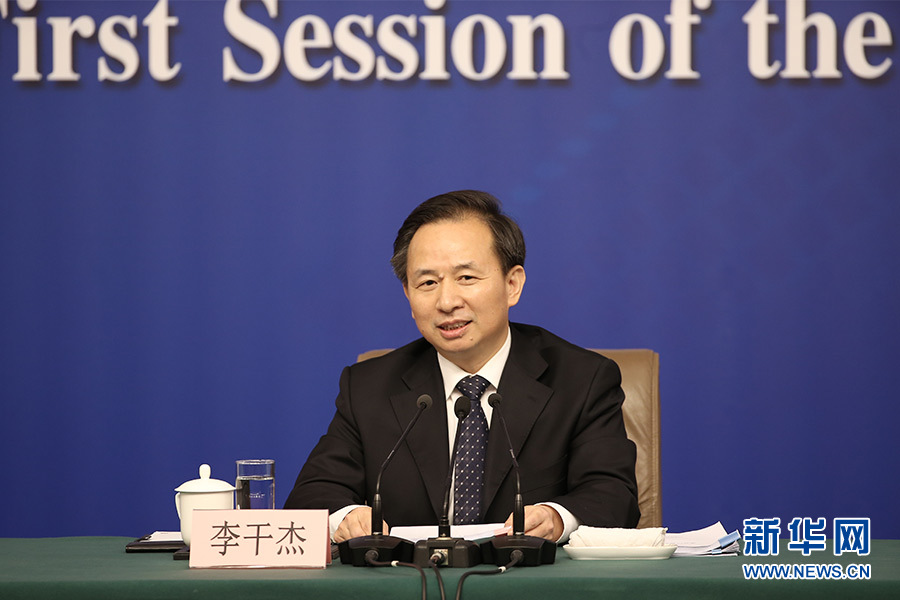
The Press Center of the First Session of the 13th National People’s Congress held a press conference at 15: 00 on March 17th (Saturday) in the multi-function hall of Media Center, and invited Li Ganjie, Minister of Environmental Protection, to answer questions from Chinese and foreign journalists on "Fighting the tough battle against pollution". The picture shows Minister of Environmental Protection Li Ganjie answering a reporter’s question.
CCTV News:In recent years, topics about environmental governance, air pollution, and central environmental protection inspectors have been constantly discussed. On the morning of the 17th, the National People’s Congress deliberated and passed the institutional reform plan of the State Council, which clearly integrated all the responsibilities of the Ministry of Environmental Protection with those of six other departments to form a new Ministry of Ecology and Environment.
On these hot topics, the Press Center of the First Session of the 13th National People’s Congress held a press conference on the 17th, and Minister of Environmental Protection Li Ganjie responded to them one by one.
The Ministry of Ecology and Environment should realize "five connections"
Regarding the functions of the Ministry of Ecology and Environment, Li Ganjie said that there are "five ways to get through" to unify the original scattered responsibilities of pollution prevention and ecological protection: the first is to get through the ground and underground, the second is to get through the shore and the water, the third is to get through the land and the sea, the fourth is to get through the cities and the countryside, and the fifth is to get through the carbon monoxide and carbon dioxide, which is to unify the prevention and control of air pollution and the response to climate change. The new Ministry of Ecology and Environment not only retains the responsibilities of the Ministry of Environmental Protection, but also has great changes.
In the past five years, the central government has invested 63.3 billion yuan to control the atmosphere.
In the past five years, with the implementation of "Atmosphere Ten", China eliminated more than 200,000 small coal-fired boilers, and eliminated more than 20 million yellow-label cars and old cars. The central government spent more than 60 billion yuan on air pollution control, reaching 63.3 billion yuan.
Li Ganjie said that although the implementation of "Atmosphere Ten" is really effective, the whole environmental protection work still has a long way to go, and it is still in a state of "depending on the weather". We also need to work harder on the basis of the past to pay close attention to implementation.
We are working hard to study and draft a three-year operational plan for defending the blue sky.
In order to control air pollution, Li Ganjie said that the three-year operational plan under study, called the three-year operational plan for defending the blue sky, is expected to come out soon. As for the target of PM2.5 concentration reduction in 2020, Li Ganjie said that some overall targets have been set in the original "Thirteenth Five-Year Plan" for ecological environmental protection, which will be roughly based on this, and further research will be carried out. Some targets will remain unchanged, and some targets may be appropriately improved.
Environmental protection inspectors are firmly opposed to ordinary inaction and chaos when the time comes.
In the process of four batches of inspectors, there has been a problem of "one size fits all" for enterprises in some places. Li Ganjie said, we are firmly opposed to the situation of doing nothing at ordinary times and doing things indiscriminately when the time comes. We should resolutely curb this trend.
Li Ganjie also said that the future work of the central environmental protection inspector will be carried out in four aspects. First, prepare for the first round of "looking back" of environmental protection inspectors; Second, combined with "looking back", carry out special supervision; Third, study and improve the relevant regulations and systems of central environmental protection inspectors; Fourth, strengthen the guidance and supervision of environmental protection inspectors at the provincial level.
关于作者